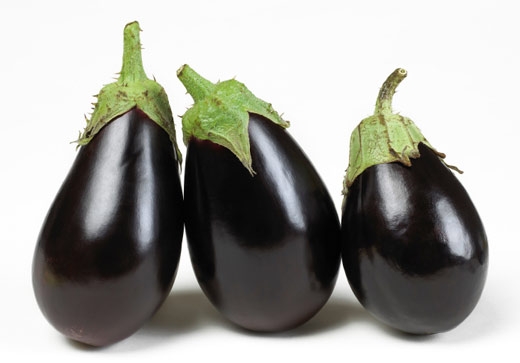
Plant characteristics
Plant Type:
- Vegetables
- Annual
Sunlight Requirements (where to plant related to sun)
- Full Sun
- Full Sun or Partially Shade
Soil Type (type of soil plant needs)
- Soil with Drainage but Wet
- Wet Soil
Climate Type (how tollerant is to frost?)
- No Frost Tolerant
Fragrant Plant (do flowers have an aroma?)
- No Fragrant Flowers
Difficulty Level (how hard is to cultivate this plant?)
- Hard
Flower Color (what color flowers produces)
- Yellow
Blooming Season (which months blooms)
- June
- July
- August
- September
Showing Season (which months can we sow seeds)
- April
- May
- June
Planting Season (which months can we plant or transplant)
- May
- June
- July
How to grow Eggplants
Eggplants are one of the vegetables that many people want to grow in their garden. It came to Europe over 100 years ago from Asia and Africa. Many people call it the “Black Beauty” because of the dark and glossy color of the fruit. Eggplants love heat and water.
It takes 100 to 150 hot days (above 21°C), before you can taste your own eggplants.
Other names for eggplants
Latin name: Solanum melongena, Solanaceae family
Other English name: Aubergine
Greek name: Μελιτζάνα (single), Μελιτζάνες (plural)
Please see also the article How to Grow Eggplants – Instructions & How to Grow Eggplants. Tips.
Tips for growing eggplants
Eggplant seeding tips and advice
You can plant eggplant seeds in a nursery or directly in the soil.
Seeds – Nursery
Start sowing eggplant seeds in the nursery at the end of April. They need warm weather to germinate. So make sure to place the eggplant nurseries in a warm spot. The ideal temperature for eggplant seeds to germinate is 24-32 degrees Celsius.
Transplanting eggplant seedlings
The transplanting of eggplant seedlings can be done after mid-June. If the temperature is lower than 21 degrees Celsius, the plant will not take hold. The distance between the plants should be 50 to 60 cm.
Best soil for eggplants
The secret to the growth of eggplants is warm weather.
Soil preparation begins at least a week before transplanting the eggplant plants.
After you have dug and poured fertilizer into the soil where you plan to plant the eggplants, you can place a black film over the soil. This will increase the soil temperature and create the right environment.
Nutritional value of eggplants / aubergines
99 grams of eggplant contain only 35 calories and are a good source of natural fiber.
The USDA’s Agricultural Research Service reports that eggplants contain high levels of phenolic antioxidants. Chief among these is chlorogenic acid, which researchers say may block the formation of cancer-causing nitrosamines and reduce the risk of some types of cancer such as liver (liver) and colon (colon) cancers.
Try to eat eggplants with the peel on. Japanese researchers have discovered that the peel on eggplants contains a powerful antioxidant that can reduce the spread of cancer. The antioxidant in the eggplant peel blocks the formation of blood vessels that feed cancerous tumors.
